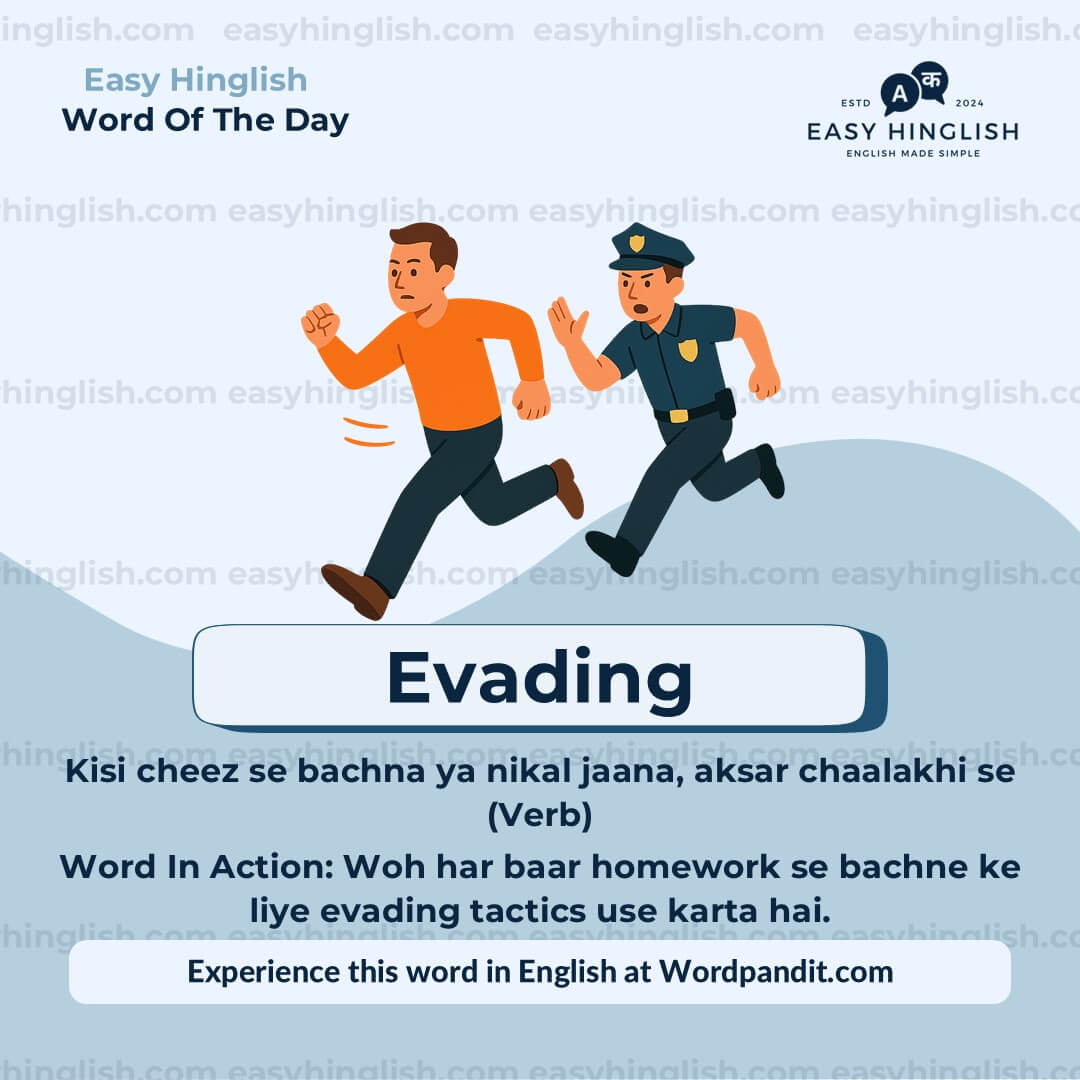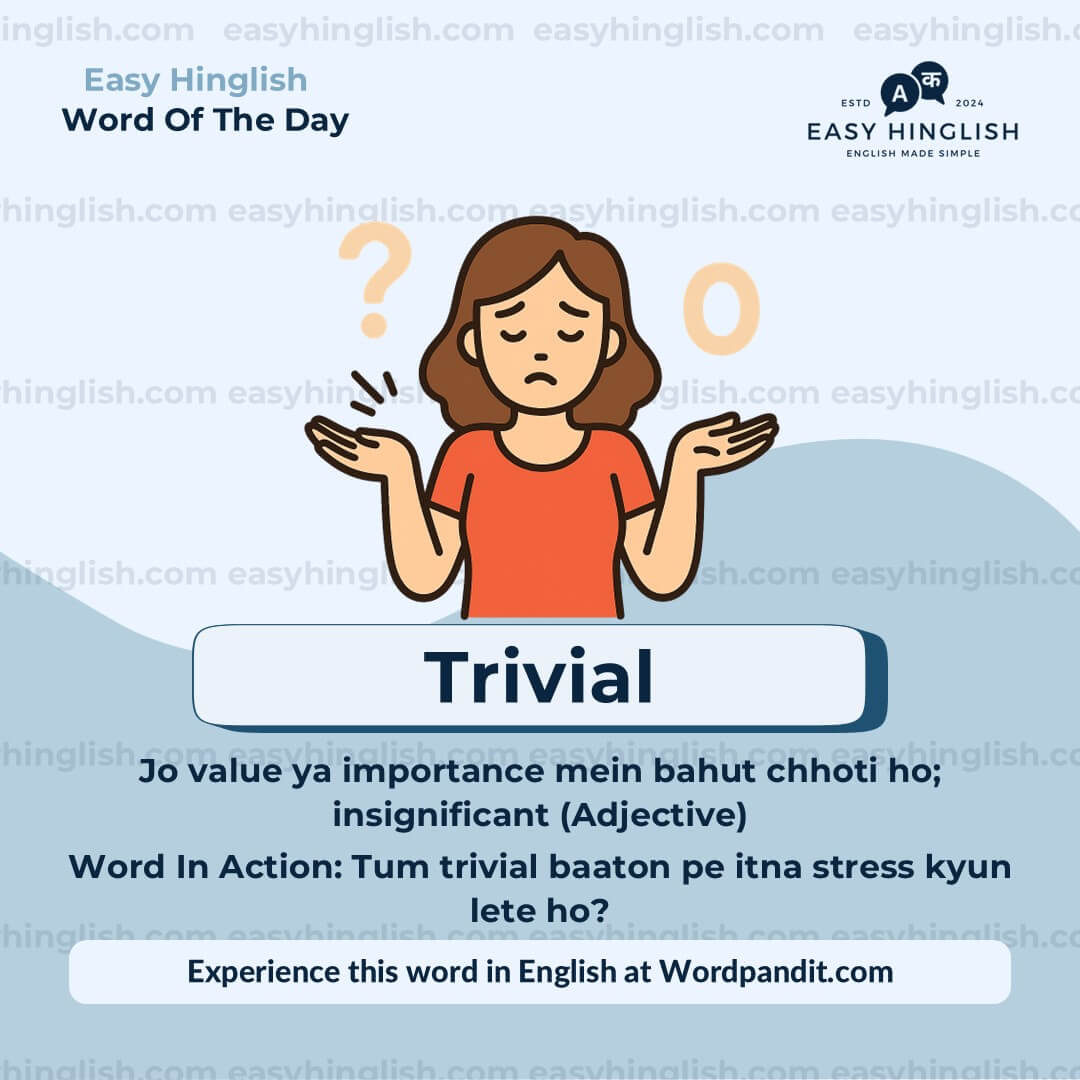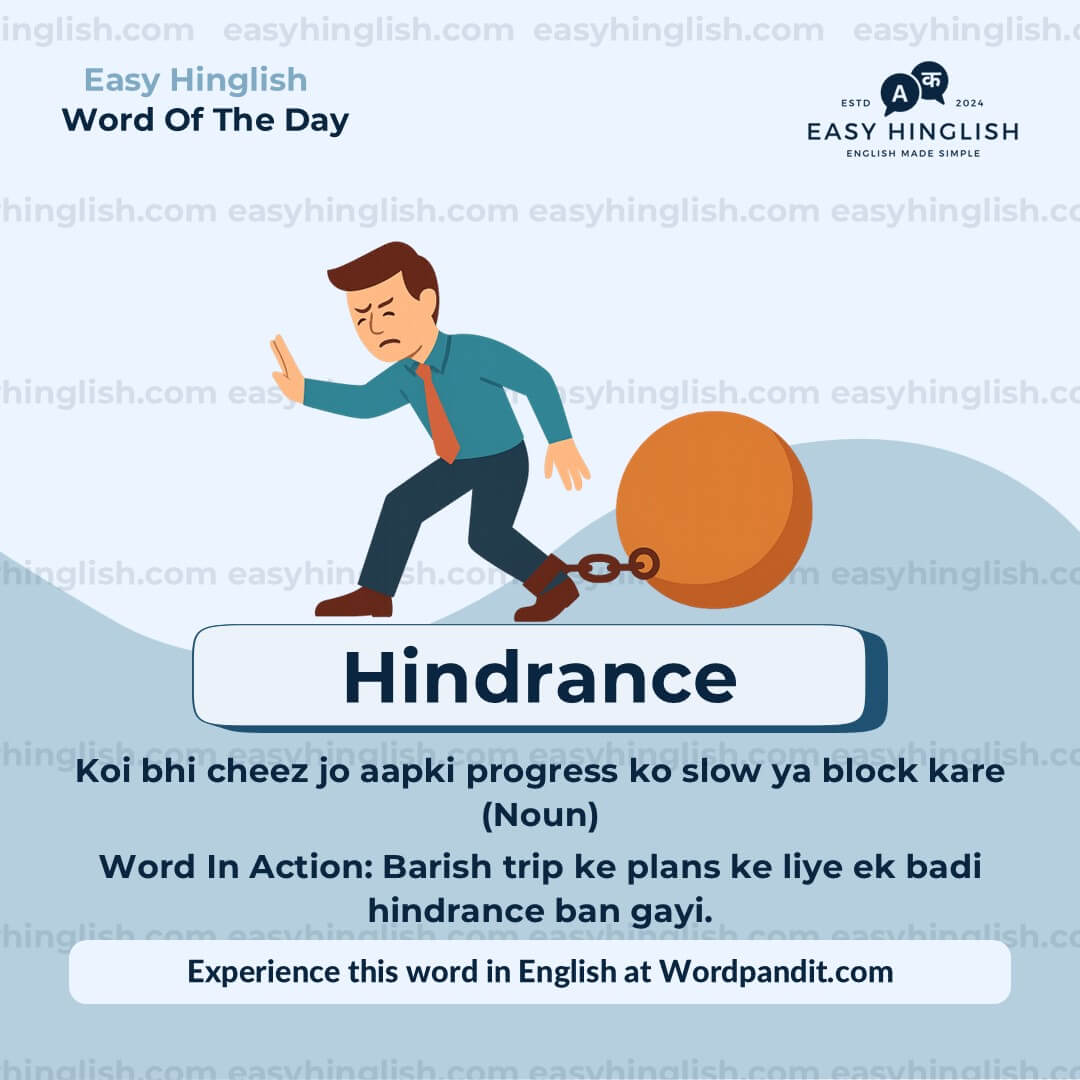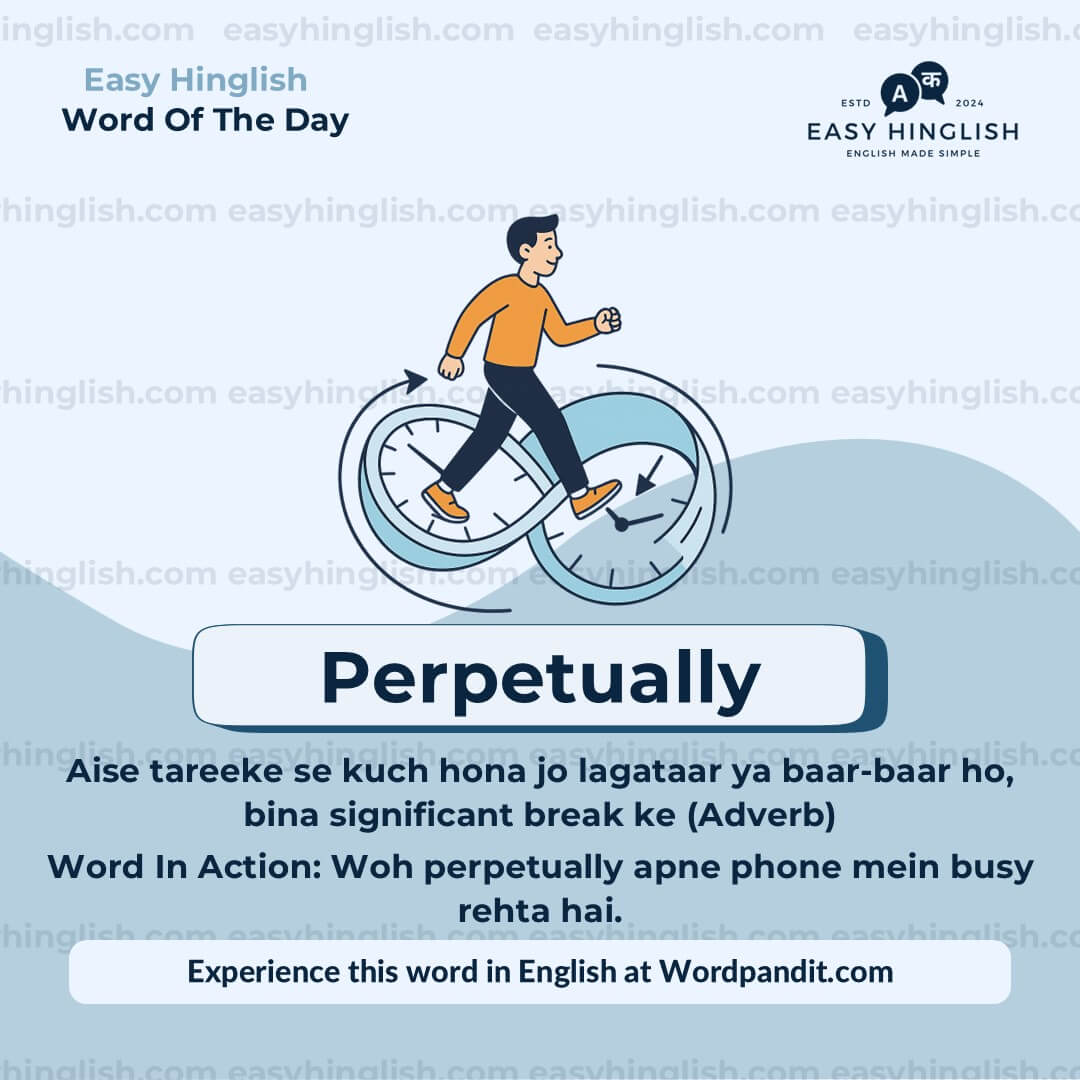Daily Vocabulary International Newspapers aur Publications se Seekho
Wordpandit ke Global Vocabulary Hub ke Saath Apni Vocabulary Expand Karo
Wordpandit par, hum aapko ek truly global vocabulary develop karne me madad karte hain, jo duniya ke sabse respected international publications se li gayi hoti hai. Yeh section aapko naye words se introduce karne ke liye design kiya gaya hai jo global conversations aur trends ko define karte hain.
Global Sources ka Power
Aapko globally sochne aur communicate karne me madad dene ke liye, hum vocabulary curate karte hain world ke top international sources se, jaise:
- The New York Times
- The Washington Post
- BBC
- The Guardian
- The Economist
- Scientific American
- Psychology Today
- Aur bhi bahut saare...
Globally Socho, Competitively Seekho
Hamare daily updates se aap international publications ke naye words seekhoge jo global news aur developments se jude hote hain. Isse aapki vocabulary current bhi rahegi aur globally relevant bhi.
Apni Global Soch Ko Expand Karo
Agar aap international exams ki tayari kar rahe ho, global business communication me excel karna chahte ho, ya sirf apni language skills improve karna chahte ho, toh Wordpandit aapko global level pe grow karne ke liye best resources provide karta hai.
Smart Learning, Global Reach
Hamari learning methodology me global examples, memory aids, aur interactive activities shamil hain, jo naye words ko effectively yaad karne aur real-world me use karne me madad karti hain.
Aaj Hi Apni Global Vocabulary Journey Shuru Karo!
Wordpandit Kyun Choose Karein?
Practical Learning: Aise words seekho jo real-world reading aur communication me aapko sach me kaam aayenge, taaki aapki comprehension aur bolne ki skills improve ho.
Diverse Content: Current affairs se lekar scientific breakthroughs tak, hamare different sources aapko multiple domains ki vocabulary seekhne ka moka dete hain.
Effortless Integration: Wordpandit ko apni daily routine ka part banao. Sirf kuch minute har din dene se aapki vocabulary time ke saath kaafi improve ho sakti hai.
Vocabulary Mastery Tak Ka Aapka Safar
- Regularly hamare Daily Vocabulary section ko visit karo
- Naye words explore karo aur unka context me use samjho
- In words ko apni writing aur bolne ki practice me use karne ki koshish karo
- Jaise-jaise aapke words badhte hain, apni progress ko track karo
Aaj Hi Apni Vocabulary Journey Shuru Karo!
Wordpandit ke saath vocabulary improve karna start karo. Roz thoda effort dalne se aap ek strong vocabulary develop kar sakte ho jo academic, professional, aur personal life me kaafi kaam aayegi.
Yaad rakho, ek naya shabd roz seekhna linguistic limitations ko door karne ka best tareeka hai! Wordpandit ko apni daily learning journey ka sathi banao aur vocabulary excellence ki taraf badho!
WORD-1: Evading
Sandarbh (Context):
"My OCD is insidious and shape-shifting, evading conscious awareness or control. It seems to have a will of its own. Except that, of course, it is a part of me." - Aeon
Vyakhya (Explanatory Paragraph):
"Evading" ka matlab hota hai kisi cheez se bachna ya usse nikal jaana, wo bhi chalak aur sochi-samjhi tareeke se. Is sentence mein, author apne OCD ko aise describe karta hai jaise woh uske control aur awareness se baar-baar bach nikalta hai — jaise pakad mein hi nahi aata. Yeh word tab use hota hai jab koi cheez ya insaan constantly slip karta rahe attention se, especially jab hum usse samajhne ya control karne ki koshish kar rahe ho.
Arth (Meaning): Kisi cheez se bachna ya nikal jaana, aksar chaalakhi se (Verb)
Uccharan (Pronunciation): ih-VAY-ding
Kathinai Star (Difficulty Level): ⭐⭐ Beginner to Intermediate
Utpatti (Etymology): Latin shabd "evadere" se aaya hai — *e* (baahar) + *vadere* (chalna), yaani "baahar nikal jaana".
Prashant Sir Ke Tathya (Prashant Sir's Notes):
“Evading” aksar psychological, criminal, ya strategic contexts mein aata hai. Yeh sirf avoid karna nahi, balki ek smart ya trickster tareeke se bach nikalna hota hai. Exams mein "avoid" aur "evade" ke beech ka subtle difference samajhna zaroori hai — "evade" mein intention aur chaalaki hoti hai.
Samanarthi & Vipritarthi (Synonyms & Antonyms):
Samanarthi (Synonyms): Avoiding, dodging, eluding, sidestepping, escaping
Vipritarthi (Antonyms): Confronting, facing, meeting, encountering
Udaharan (Usage Examples):
- Police se bachne ke liye suspect baar-baar location badal raha tha — he was evading the police.
- Woh har interview mein mushkil sawalon ko evade karti thi — very cleverly.
Sanskritik Sandarbh (Cultural Reference):
"The Matrix" (1999) mein Neo ka bullets ko slow motion mein evade karna ek iconic moment tha — yeh dikhata hai kitni skill se koi danger se bach sakta hai.
Sochiye (Think About It):
Kya log kabhi-kabhi responsibilities ya sach se isliye bachte hain kyunki unhe samna karna mushkil lagta hai?
Chhoti Kriya (Quick Activity):
“Evading” ka use karte hue do sentences likho — ek physical situation (jaise police ya game) mein aur ek emotional ya psychological context mein.
Yaad Karne Ka Tarika (Memory Tip):
“Evading” ko yaad karo is tarah: *e-VADE* = Vanishing And Dodging Everything — har cheez se slip karke nikal jaana!
Vastavik Jeevan Me Upyog (Real-World Application):
Daily news mein “evading” aksar use hota hai — jaise kisi politician ne accountability evade kiya, ya koi criminal arrest se evade kar gaya.
WORD-2: Frittering
Sandarbh (Context):
"You too might find yourself frittering away those precious hours on life admin and social media." - Aeon
Vyakhya (Explanatory Paragraph):
"Frittering" ka matlab hota hai dheere-dheere aur bina soche samjhe kisi keemti cheez ko waste kar dena — jaise time, paisa, ya energy. Is sentence mein bataya gaya hai ki hum kaise social media aur chhoti-chhoti life ki tasks mein apna precious samay kharch kar dete hain bina realize kiye. Yeh word highlight karta hai woh slow loss jo hamare notice ke bahar ho jata hai, jab hum chhoti lekin bekaar cheezon mein busy rehte hain.
Arth (Meaning): Time, paisa ya energy ko bekaar aur chhoti cheezon mein waste kar dena (Verb)
Uccharan (Pronunciation): FRIT-uh-ring
Kathinai Star (Difficulty Level): ⭐⭐ Intermediate
Utpatti (Etymology): 18th century se "fritter" word se aaya hai — jiska matlab hota tha "chhote tukdo mein tod dena ya dheere-dheere barbaad karna."
Prashant Sir Ke Tathya (Prashant Sir's Notes):
“Frittering” ek aisa word hai jo modern distractions ko perfectly capture karta hai. Jab bhi aap kisi valuable cheez ko dheere-dheere lose karte ho bina notice kiye — especially time — tab yeh word use karna chahiye. Yeh word bataata hai ki kaise chhoti-chhoti cheezen milkar bada nuksan kar sakti hain.
Samanarthi & Vipritarthi (Synonyms & Antonyms):
Samanarthi (Synonyms): Squandering, wasting, dissipating, misusing, idling away
Vipritarthi (Antonyms): Conserving, saving, investing, utilizing, optimizing
Udaharan (Usage Examples):
- Weekend bhar woh apna samay fritter karta raha, project finish hi nahi kiya.
- Email ke chakkar mein hum apna dhyaan fritter kar dete hain, instead of doing deep work.
Sanskritik Sandarbh (Cultural Reference):
Film *Dead Poets Society* (1989) ka famous dialogue "Carpe diem — seize the day!" yahi sikhata hai ki samay ko fritter na karo, balki use kuch extraordinary banane mein lagao.
Sochiye (Think About It):
Aapka roz ka kitna samay genuinely meaningful kaam mein lagta hai, aur kitna fritter ho jata hai bina notice kiye?
Chhoti Kriya (Quick Activity):
Tin aisi cheezen likho jahan tum aksar time ya paisa fritter karte ho. Har ek ke liye ek solution bhi socho jo tumhe woh habit chhodne mein help kare.
Yaad Karne Ka Tarika (Memory Tip):
Socho “fritter” jaise chhoti chhoti crumbs ya snacks — har crumb ek chhoti distraction hai jo aapka pura din dheere-dheere kha jaata hai!
Vastavik Jeevan Me Upyog (Real-World Application):
Productivity aur time management ke discussions mein yeh word bahut useful hai. Life coaches aur planners aksar warn karte hain — apne resources fritter mat karo, unhe smartly invest karo.
WORD-3: Trivial
Sandarbh (Context):
"Perhaps you’ve criticised a long-suffering partner about stupid, trivial things, to the point you worry they may actually pack up and leave." - Aeon
Vyakhya (Explanatory Paragraph):
"Trivial" ka matlab hota hai aisi cheezein jo chhoti, maamooli, ya insignificant hoti hain — jinpar zyada tension lena zaroori nahi hota. Is context mein, author keh raha hai ki hum kabhi-kabhi apne partner ko un chhoti-chhoti baaton ke liye criticize kar dete hain jo asal mein koi importance nahi rakhti. Aise trivial issues par focus karna rishte mein stress laa sakta hai, jabki unhe ignore karke peace banaye rakha ja sakta hai.
Arth (Meaning): Jo value ya importance mein bahut chhoti ho; insignificant (Adjective)
Uccharan (Pronunciation): TRIH-vee-uhl
Kathinai Star (Difficulty Level): ⭐ Beginner
Utpatti (Etymology): Latin word *trivialis* se aaya hai, jiska matlab hota hai “common ya ordinary.” Yeh originally use hota tha crossroads par milne wali aam cheezon ke liye (*tri* = teen + *via* = road).
Prashant Sir Ke Tathya (Prashant Sir's Notes):
“Trivial” ek useful word hai daily conversations aur essays ke liye. Jab kisi cheez ko unimportant batana ho, tab is word ka use impactful hota hai. “Trivial” aur “significant” ke beech ka contrast samajhna helpful hai — especially jab aap kisi situation ki priority decide kar rahe ho.
Samanarthi & Vipritarthi (Synonyms & Antonyms):
Samanarthi (Synonyms): Insignificant, petty, minor, unimportant, negligible
Vipritarthi (Antonyms): Significant, important, meaningful, substantial, major
Udaharan (Usage Examples):
- Ek chhoti si misunderstanding par woh dukhi ho gayi — it was really trivial.
- Jab bade faisle lene ho, tab trivial baaton par energy waste mat karo.
Sanskritik Sandarbh (Cultural Reference):
"Trivia" word (jo "trivial" se aaya hai) ka use hota hai pub quizzes aur fun facts mein — yeh dikhata hai ki kuch cheezein interesting hoti hain, par zaroori nahi.
Sochiye (Think About It):
Kya aapne kabhi mehsoos kiya hai ki log serious problems ke bajaye chhoti-chhoti trivial baaton mein ulajh jaate hain?
Chhoti Kriya (Quick Activity):
Do trivial baatein likho jinke chakkar mein aksar arguments ho jaate hain. Phir likho ki aap unhe kaise ignore ya reframe kar sakte ho taaki shanti bani rahe.
Yaad Karne Ka Tarika (Memory Tip):
"Trivial" = "Trivia" jaise fun facts — interesting par life ke liye essential nahi. Agar trivia hai, toh trivial hai!
Vastavik Jeevan Me Upyog (Real-World Application):
"Trivial" ka use workplaces, relationships, aur writing mein hota hai jab hume kisi chhoti cheez ko unimportant declare karna ho. Iska upyog smart decision making aur conflict resolution mein help karta hai.
WORD-4: Hindrance
Sandarbh (Context):
"When we are given a shot – blowing it, or subtly hindering our chances. The puzzle is why so many of us perpetually find ourselves getting in our own way and disrupting our best-laid plans." - Aeon
Vyakhya (Explanatory Paragraph):
“Hindrance” ka matlab hota hai koi aisi cheez ya aadmi jo aapki progress mein rukawat daalta hai, ya aapko slow kar deta hai. Is sentence mein author yeh keh raha hai ki hum khud apne raste mein rukawat ban jaate hain — apne doubts, habits, ya fears ke wajah se. Yeh word batata hai ki har obstacle bahar se nahi aata — kai baar rukawat andar se bhi hoti hai.
Arth (Meaning): Koi bhi cheez jo aapki progress ko slow ya block kare (Noun)
Uccharan (Pronunciation): HIN-druns
Kathinai Star (Difficulty Level): ⭐⭐ Intermediate
Utpatti (Etymology): Middle English ke “hinderen” se aaya hai, jiska matlab hota hai “nuksaan pahunchana ya delay karna”; Germanic root se jiska matlab hota hai "peeche reh jaana ya ruk jaana".
Prashant Sir Ke Tathya (Prashant Sir's Notes):
“Hindrance” ka use tab hota hai jab aap kisi cheez ko barrier ya delay ke roop mein describe karna chahte ho. Yeh physical bhi ho sakta hai (jaise traffic) aur mental bhi (jaise anxiety). Dhyan rahe — hindrance ka matlab yeh nahi ki kuch impossible ho gaya, bas yeh ki thoda difficult ho gaya.
Samanarthi & Vipritarthi (Synonyms & Antonyms):
Samanarthi (Synonyms): Obstacle, barrier, impediment, obstruction, interference
Vipritarthi (Antonyms): Aid, help, assistance, support, advantage
Udaharan (Usage Examples):
- Project complete karne mein funding ki kami ek badi hindrance ban gayi.
- Interview ke time uski anxiety ek hindrance ban gayi performance ke liye.
Sanskritik Sandarbh (Cultural Reference):
Shakespeare ke *Hamlet* mein hero ka overthinking hi ek hindrance ban jaata hai action ke liye — jaise uska famous line: “Thus conscience does make cowards of us all.”
Sochiye (Think About It):
Kya aapke andar ki koi hindrance — jaise fear, doubt, ya procrastination — aapko apne goals se roke hue hai?
Chhoti Kriya (Quick Activity):
Ek hindrance identify karo jo aapne is week face ki ho. Ab socho ki usse kaise overcome ya reduce kiya ja sakta hai.
Yaad Karne Ka Tarika (Memory Tip):
Socho: *Hinder* matlab rokna — agar koi cheez *hinder* karti hai, toh woh aapke raste ki *hindrance* hai!
Vastavik Jeevan Me Upyog (Real-World Application):
“Hindrance” ka use productivity, personal growth, aur business planning mein hota hai. Jab aap jaante hain ki kya rukawat bana hua hai, tab aap easily usse deal kar sakte ho aur aage badh sakte ho.
WORD-5: Perpetually
Sandarbh (Context):
"When we are given a shot – blowing it, or subtly hindering our chances. The puzzle is why so many of us perpetually find ourselves getting in our own way and disrupting our best-laid plans." - Aeon
Vyakhya (Explanatory Paragraph):
“Perpetually” ka matlab hota hai koi kaam ya habit jo baar-baar hota hai, bina rukke ya lagataar. Is sentence mein author batata hai ki kai log hamesha apne hi raste mein rukawat ban jaate hain — jaise yeh ek repeat hone wali aadat ban gayi ho. Yeh word frustration aur helplessness bhi dikhata hai, jaise koi pattern barabar repeat ho raha ho aur usse todna mushkil lag raha ho.
Arth (Meaning): Aise tareeke se kuch hona jo lagataar ya baar-baar ho, bina significant break ke (Adverb)
Uccharan (Pronunciation): per-PECH-oo-uh-lee
Kathinai Star (Difficulty Level): ⭐⭐ Intermediate
Utpatti (Etymology): Latin ke *perpetuus* se aaya hai, jiska matlab hota hai “continuous” ya “uninterrupted,” jisme *-ly* suffix jod ke adverb banaya gaya.
Prashant Sir Ke Tathya (Prashant Sir's Notes):
“Perpetually” “often” ya “frequently” se zyada strong word hai — yeh ek loop ka sense deta hai. Jab kisi repeated struggle, problem, ya emotion ki baat karni ho, tab iska use impactful hota hai. “Perpetually worried,” “perpetually late” — aise phrases emotions ko aur deep bana dete hain.
Samanarthi & Vipritarthi (Synonyms & Antonyms):
Samanarthi (Synonyms): Constantly, endlessly, repeatedly, incessantly, always
Vipritarthi (Antonyms): Occasionally, rarely, intermittently, temporarily, infrequently
Udaharan (Usage Examples):
- Woh perpetually late rehta hai, jitni baar bhi reminder diya jaaye.
- Machine tab tak perpetually chalti rehti hai jab tak manually band na kiya jaaye.
Sanskritik Sandarbh (Cultural Reference):
Greek mythology mein Sisyphus ko perpetually ek pathar ko pahaad par le jaane ki saza milti hai — lekin woh har baar wapas neeche gir jaata hai. Yeh endless struggle ka symbol ban gaya hai.
Sochiye (Think About It):
Kaunse habits ya sochne ke tareeke mein aap perpetually phase hue ho, aur unka cycle todne ke liye kya kar sakte ho?
Chhoti Kriya (Quick Activity):
“Perpetually” use karke apne kisi personal habit par ek sentence likho. Ab usi sentence ko ek synonym ke saath rewrite karo — kya tone change hua?
Yaad Karne Ka Tarika (Memory Tip):
Socho: *Perpetually = Permanent + Actually* — kuch aisa jo truly permanent lagta ho ya constantly hota ho!
Vastavik Jeevan Me Upyog (Real-World Application):
“Perpetually” ka use psychological talks, productivity feedback, aur personal growth conversations mein hota hai — jaise perpetually late rehna, perpetually insecure feel karna, etc. Yeh word ek serious ongoing issue dikhata hai.













